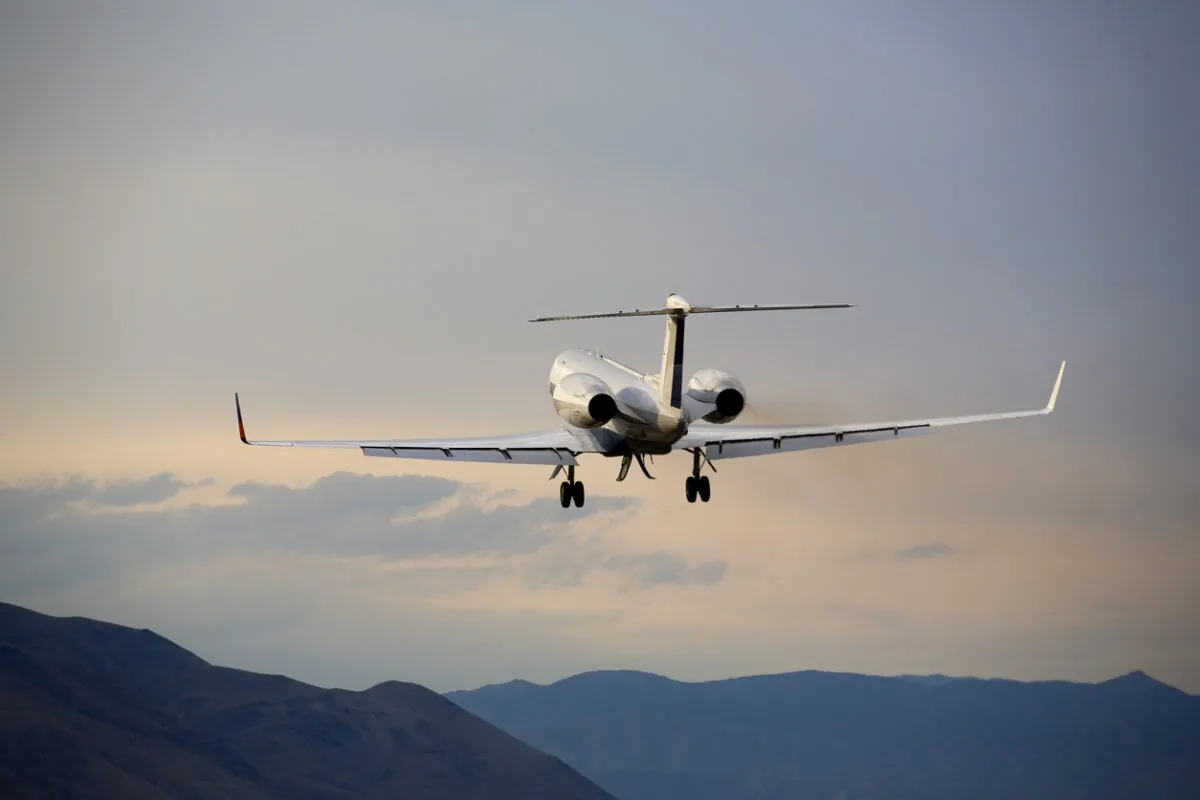Are Private Jets Safe?
Are private jets safe? Absolutely. With stringent regulations, highly trained pilots, and advanced safety technology, private jets offer a secure and reliable travel option. Routine maintenance, strict oversight, and flexible flight planning enhance safety measures. Choosing a reputable operator ensures passengers enjoy a smooth, luxurious, and worry-free flying experience.

Flying on a private jet offers exclusivity, convenience, and luxury, but many travelers ask the critical question: Are private jets safe? Concerns about aircraft maintenance, pilot training, and emergency preparedness often arise when considering private jet travel.
This article explores the safety measures, regulations, and industry advancements that make private jets a secure mode of transportation.
Are Private Jets Safe?
Safety is a top priority in the private aviation industry, with strict regulations and oversight ensuring that private jets meet rigorous standards. Unlike commercial airlines, private jet operators often go above and beyond to maintain their aircraft and ensure top-tier pilot training. Advanced technology and weather monitoring systems further enhance flight safety.
While some may assume that private jets are less secure due to their smaller size, they often operate under the same or even stricter regulations than commercial planes. With highly trained crews, routine maintenance checks, and regulatory oversight, private jets are a reliable and secure mode of travel.
Here’s what you need to know about private jet safety.
Understanding Private Jet Safety
The private aviation industry prioritizes safety through strict regulations, advanced technology, and highly trained professionals. Every aspect of private jet travel, from pilot qualifications to aircraft maintenance, is carefully monitored to meet or exceed safety standards. Charter companies and private jet operators work diligently to ensure smooth and secure flights for their passengers.
Private Jets vs. Commercial Airlines: A Safety Comparison
When comparing private jets to commercial airlines, both operate under stringent safety regulations set by aviation authorities. However, private jets offer certain advantages, such as access to smaller airports with lower air traffic congestion, reducing the risk of delays and accidents.
Additionally, private jets undergo meticulous maintenance and inspections, similar to commercial aircraft, ensuring their airworthiness before each flight.
Pilot Training and Certification: Ensuring Skilled Operation
Private jet pilots undergo extensive training and certification, often exceeding commercial airline requirements. They must meet strict flight hour requirements, complete simulator training, and stay current with safety protocols. Many pilots have prior experience flying for commercial airlines or the military, bringing a wealth of expertise to private aviation.
Aircraft Maintenance and Inspections: Meeting Strict Standards
Private jets are subject to routine maintenance and safety inspections to comply with aviation regulations. Aircraft undergo pre-flight, post-flight, and scheduled maintenance checks to ensure optimal performance. Operators follow manufacturer guidelines and aviation authority requirements to guarantee aircraft safety.
Advanced Technology: Safety Features in Modern Private Jets
Modern private jets are equipped with state-of-the-art safety features, including advanced avionics, collision avoidance systems, and real-time weather tracking. Enhanced autopilot technology and digital flight monitoring systems further improve flight safety.
These technological advancements contribute to the overall security and reliability of private jet travel.
Weather and Flight Planning: Reducing Risks in the Air
Private jet operators use sophisticated weather monitoring systems to plan the safest routes. Pilots receive real-time weather updates, allowing them to make informed decisions and avoid hazardous conditions.
Additionally, private jets have the flexibility to adjust flight paths or reschedule flights to ensure passenger safety.
Air Traffic Control and Regulations: Oversight for Private Flights
Private jets operate under strict air traffic control regulations, just like commercial flights. Aviation authorities, such as the FAA, enforce stringent safety protocols for private aviation. Air traffic controllers monitor private jets to ensure compliance with flight plans, airspace restrictions, and altitude regulations.
Emergency Procedures: Preparedness for Unforeseen Situations
Private jet operators prioritize emergency preparedness through comprehensive safety protocols. Pilots undergo rigorous training to handle emergencies, including engine failures, turbulence, and medical situations.
Aircraft are also equipped with emergency equipment, such as oxygen masks, fire extinguishers, and life vests.
Private Jet Operators: Choosing a Reputable Charter Service
Selecting a reputable private jet charter service is crucial for ensuring safety. Reputable operators adhere to stringent safety regulations, employ highly trained pilots, and maintain their aircraft to the highest standards. Passengers should research operators, check safety ratings, and review industry certifications before booking a flight.
Common Misconceptions About Private Jet Safety
Some travelers believe that private jets are less safe than commercial flights due to their smaller size. However, private jets undergo the same rigorous safety inspections and maintenance protocols as larger aircraft.
Additionally, private jets often fly at higher altitudes, avoiding commercial air traffic and reducing the risk of mid-air collisions.
Passenger Responsibility: How to Enhance Your Safety
Passengers play a role in ensuring their own safety when flying on a private jet. Following crew instructions, wearing seatbelts, and adhering to flight safety guidelines contribute to a secure travel experience.
Travelers should also verify the credentials of their chosen private jet operator to ensure compliance with safety standards.
Industry Trends: The Future of Private Jet Safety
The private aviation industry continues to evolve, integrating cutting-edge technology and safety innovations. Advancements in artificial intelligence, predictive maintenance, and automated flight monitoring systems enhance safety measures.
As private aviation grows, regulatory agencies will continue to implement stricter safety standards to ensure the highest levels of security.
Book Your Private Jet
Are you ready to experience the safety and luxury of private jet travel? The Early Air Way offers top-tier private jet charter services with a strong commitment to safety, comfort, and reliability.
Book your private jet today and enjoy a secure, seamless journey with trusted aviation experts.
Conclusion
So, are private jets safe? With rigorous pilot training, strict maintenance standards, and cutting-edge technology, private jets offer a secure and reliable travel option.
Choosing a reputable operator and following safety protocols ensures a smooth and safe journey in the world of private aviation.

